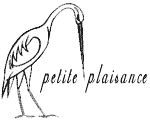|
Tra il 1841 e il 1843 Marx s’impegna in una titanica battaglia filosofica con se stesso nel tentativo di liberarsi del misticismo olistico tipico dell’idealismo tedesco e nella tensione verso un approccio scientifico e realista ai problemi della rivoluzione. Nella battaglia pone le basi metodologiche che alla fine del ’43 giustificano la sua conversione al comunismo e due anni più tardi lo portano all’elaborazione della concezione materialistica della storia.
Questo libro narra dei principali episodi della battaglia, mostrando che essa non si risolve in una vittoria schiacciante della luce sulle tenebre. Esistono propensioni metafisiche di Hegel di cui Marx non riuscirà a liberarsi in gioventù e di cui anzi non si libererà mai completamente.
Mettere a nudo queste propensioni è oggi necessario. Lo è in vista di una rifondazione del pensiero comunista, poiché seppur non è del tutto vero che l’hegelismo è la malattia giovanile di Marx è invece accertato che resta la malattia infantile del marxismo.
Ma è soprattutto necessario portare alla luce le innovazioni teoretiche e metodologiche emerse dal tentativo di fare i conti con l’idealismo, perché è solo in quanto scienza che il marxismo può rivendicare la sua attualità come strumento di liberazione.
ABSTRACT
In this essay I investigate the formation of the young Marx’s scientific methodo-logy and political theory in the years 1841-43. Besides the Critique of Hegel’s Doctrine of the State, I examine various other unpublished works which have received scarce consideration from Marxist students, for instance the Berliner and the Kreuznacher Hefte, especially those dealing with Leibniz, Spinoza, Rousseau and Machiavelli.
In 1841 Marx assimilates from Leibniz a notion of individuality he maintains during his entire lifetime, a concept that identifies social agents as the concrete, heterogeneous and limited individuals who make up a community. From Leibniz he also learns the importance of two crucial scientific standards: the principle of non-contradiction as the basis of logic; and the principle of causality as the basis for explaining real phenomena. From Spinoza, on the other hand, he deduces an orientation to methodological and ethical individualism and realizes their importance for the foundation of a radical theory of democracy, freedom and revolution.
In the early months of 1843 he tackles Hegel’s and Rousseau’s political theories and tries to deconstruct both by bringing to light their holistic metaphysics. Rejection of ontological holism underpins two theoretical innovations introduced by Marx in this period, one as a scientist and the other as a revolutionary politician. On the one hand it opens up to a methodological individualism on the basis of which a scientific approach to social problems is founded. On the other, it gives way to an axiological individualism which, by endorsing a critique of the ideology of ethical state, arrives at formulating the principles of true democracy.
However, under the influence of Bruno Bauer’s abstract rationalism and Ludwig Feuerbach’s humanist essentialism, the young Marx remains trapped in a particular form of ontological and ethical holism, a form whereby the actor of revolutionary transformation is identified in a “people” or a “human species” defined as a collective agent essentially endowed with rationality and morality, i.e. with two emerging properties that make him a universal subject of history.
As a consequence, the kind of society the idealist Marx sees as resulting from revolutionary transformation is by and large devoid of the institutional “mediations” which are typical of a State based on the rule of law. In this view the community is organically regulated by a “general will”, a “rational will”, a “species will” or a “common good” conceived as self-conscious realizations of the morality innate in the people or the species.
After August 1843 the reading of Machiavelli’s Discourses and various books on the French Revolution and American society prompts Marx to take a decisive step beyond idealism. In this passage the young revolutionary begins to see class struggle as the real mover of historical change. The “people” is now conceived as a class of exploited workers who fight against the exploiting classes, moved by material interests of economic and political import. Thus revolution is no longer envisaged as an act of collective consciousness which subsumes the State into civil society. Rather it is described as a permanent struggle, an ongoing process that transforms the State and civil society by overthrowing the dominant classes’ economic and political power, and expands freedom by attacking all economic and social inequalities.
In September 1843 Marx is at the threshold of the theory of communism.
|

